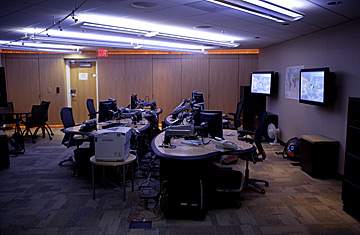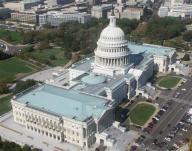– Supreme Court to rule on legality of wiretapping through FISA (RT, Sep 19, 2012):
The fight to stop the government’s sweeping surveillance of emails and phone calls will go all the way to the Supreme Court. The ACLU has filed a lawsuit challenging the warrantless wiretapping provisions included under the FISA Amendment Acts.
The US House of Representative voted last week to reauthorize the 2008 amendments added to the Foreign Intelligence Surveillance Act, or FISA, that allow for blanketing surveillance and eavesdropping of any communication suspected to be sent outside of the United States. Under the FISA Amendment Act (FAA), the government is granted the power to peer into the inboxes of any American and listen in on long-distance calls without ever requiring a judge’s approval. Pending approval from the Senate, the FAA will be renewed this year and be left on the books for another five years. The American Civil Liberties Union is adamantly opposed, however, and has asked the highest court in America to intervene.
On Monday, attorneys with the ACLU filed a brief (.pdf) with the Supreme Court challenging FISA and the FAA in hopes of keeping the feds from further snooping on message assumed to be private but made open to the National Security Agency with little oversight into their endeavors. The claim was filed on behalf of plaintiffs composed of human rights activists, attorneys, journalists and others opposed to the act “whose work requires them to engage in sensitive and sometimes privileged telephone and e-mail communications with people located outside the U.S,” the ACLU explains.
“Under the FAA, the government can target anyone — human rights researchers, academics, attorneys, political activists, journalists — simply because they are foreigners outside the United States, and in the course of its surveillance it can collect Americans’ communications with those individuals,” the ACLU writes in the brief.
Read moreU.S. Supreme Court To Rule On Legality Of Wiretapping Through FISA

